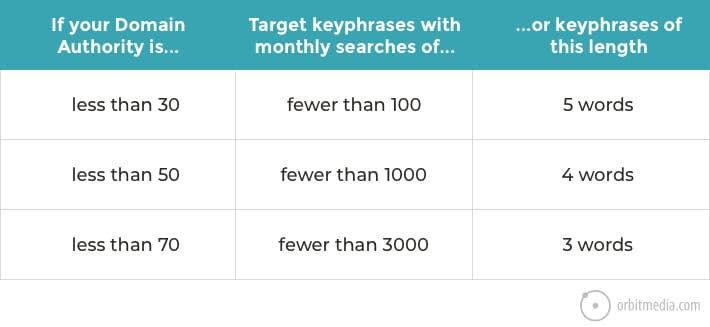In the ever-changing landscape of digital marketing, two pervasive ideologies seem to spar constantly: one that says carefully crafted original content is king, and one that favorites search engine optimization over creative freedom.
Digital denizens love to pick sides in this battle, but the reality is that there’s no real need to choose one or the other; content and SEO do not exist in mutually exclusive bubbles.
As it turns out, content and SEO are actually inextricably linked, and content can play a critical role in search engine optimization—but how? Does this relationship blossom naturally, or must it be cultivated? What are the SEO impacts of lackluster content?
These are the sorts of questions we receive all too often from those struggling to balance the art and science of digital marketing; to help dispel some of the haze surrounding this vital topic, we reached out to 25 SEO experts for their take on the content connection.
We summed up all of the related questions we’ve received on this subject and succinctly asked:
How can content influence (impact) a website’s rankings?
Read on to gain some truly expert insight.
Chris Dreyer – Rankings.io
Content is the backbone of any search engine optimization strategy. If you’re producing blogs, pages, press releases, directories….you name it, to some degree, it’s all content.
Nowadays, Google receives an immense amount of new pages added to their index on a daily basis. If you want to stand out and have the opportunity to rank, you have to create something unique and compelling.
And no, I’m not talking about passing a Copyscape plagiarism check. I’m not talking about something that answers consumer intent in a manner that delights the searcher.
Keep in mind, Google can’t see the smile on a consumer’s face after that individual has read your content, but they can measure dwell time, the average number of pages visited, etc. Those signals are what can influence and impact a website’s rankings.
If you’re just creating “unique” content that’s cited from the same sources that every individual is pulling from, you’ll have a difficult time avoiding being filtered just like everyone else.
Create content that is innovative, drives emotion, drives a response, and you’ll be on the road to better search engine visibility.
David Pagotto – SIXGUN
The content on your website can either make or break your SEO strategy. The reason for this is simple; when it comes to your ranking, Google favours copy that is well-written, trustworthy and useful to the reader.
Great content strikes the perfect balance between answering the questions your audience is searching for and showing them how your product or service can help with the key issues that brought them to your website in the first place.
It’s important to remember that Google’s aim is to provide the easiest, most enjoyable and most reliable user experience possible.
If your content is difficult to read because it’s jam-packed with keywords, spelling errors and simply doesn’t align with the search intent of your visitors, you’re unlikely to achieve SEO success.
This is why careful planning and research is crucial; spend some time looking into what questions your target audience are asking, write in a way that is concise yet interesting and, perhaps most important of all, spend less time ‘selling’ and more time demonstrating your industry expertise.
Great content is the cornerstone of SEO success, so it’s worth spending time getting it right.
Andrew Holland – Zoogly Media
Content is the area that I see 99% of businesses make mistakes with.
They treat it in a way that is all ‘me, me, me’.
So we end up with content that was written to rank and not written to be read. The result for the business is poor conversions no matter how they might rank.
I am yet to meet anyone who likes a business that wastes the readers/searchers’ time.
Great content is a game-changer, both in terms of lead generation but also search rankings.
From an obvious point, great in-depth content increases the dwell time of a visitor to a site, This is a huge SEO signal.
And of course, great content that is read often leads to the searcher reading other content on the website.
And again this is a great search engine ranking signal. And don’t forget we have subject depth.
A great article will go into a subject in detail and this is another signal to Google that your content is a through and quality article.
For example, let’s say you are talking about house painting tips. Sure, you could write an article such as ‘5 House Painting Tip You Need To Know’.
And this might get you a few clicks on social media.
Or you could create ‘The Complete Guide To painting Your House’ and add sub-topics on picking the right paint, the right paintbrush, and so on.
One article is super in-depth, while the other just a mild distraction.
Now, when you start to create numerous articles of this standard, your website becomes hugely useful and this means a visitor reads more, stays longer, and of course shares your content.
And this process starts the cycle all over again.
Great content not only helps business, but it also helps everyone. From search engines to searchers and customers.
The only question you need to ask yourself is ‘why aren’t we writing better content?’ And then set about making content a top priority.
Matt Diggity – Diggity Marketing
Content is one of the most prominent search engine ranking factors that exist today.
In a perfect world, and if Google’s algorithm were complex enough, the algorithm wouldn’t have to rely on any external signals other than content in order to determine a website’s placement in the rankings.
For example, you should be able to search “how to bake a pie” and the algorithm would be able to read the content of every single document on the internet and order them by which one gives the best instructions for baking pie.
Alas, we’re not there yet, but getting closer every day.
Andy Crestodina – Orbit Media
Google is looking for the best content on the internet for the topic. So naturally, the content should be one of the 10 best pages on the web to rank on page one of Google.
But obviously, there’s more to it than that. If the target keyphrase is super competitive, the website has to be super authoritative, as in, it has to have good link popularity and a high “Domain Authority“
Evaluating competition is an art and a skill that takes time to build, but there is a shortcut. If the authority of your website is low, just target longer, more specific phrases. There is much less competition for the “long tail” (5+ word) keyphrases.
Here’s a quick guide for matching your website’s ranking potential with the length of the target phrase:
Christina Nicholson – Media Maven
It’s important to create content and publish it on your own platforms because it’s content you control. You can say whatever you want in whatever way you choose.
However, it’s also important for others to talk about you and what you do.
When you earn exposure on a platform other than yours and that platform links back to your content, it sends a message to search engines that say, “Hey, people are talking about this person/brand/business and linking back to him/her/it, so this must be credible.”
It’s not just the search engines that get that message, it’s all kinds of people. The more you are seen in a variety of places, the more you build the perception of being an authority in your space.
When it comes to website rankings, it’s all about authority.
Gabriel Sim – Undrcut Digital
Content is the foundation in SEO and link building is the gasoline that causes rankings to “explode”.
Without a solid foundation of content, relevance and just in general, a page on your website with the keywords you want to rank for, it is difficult for Google to pick up the intent behind your webpage, even with a ton of links, and reward you with the appropriate rankings.
Our SEO strategy consists of starting off with 100-200 high-quality content pieces on a site, before starting on our link building and pushing the site into what is commonly known as “authority mode”.
We focus the bulk of the content on one silo, with a few pages branching out so Google knows we are the topical expert in one specific area and have the intent to branch out to a broader site.
Marcus Miller – Bowler Hat
When it comes to SEO content is everything. It is just that simple. Your website and all the technical SEO elements that surround your site are important, maybe now more than ever, but really, the heart of your website is the content that you create.
In Google’s Webmaster Guidelines there is one of the basic principles that I feel really covers the essence of what you should be trying to achieve with your content:
“Think about what makes your website unique, valuable, or engaging. Make your website stand out from others in your field.”
Think about what makes your website unique, valuable, or engaging. This is just so key for everything from e-commerce stores to local businesses. We just have site after site after site that are carbon copies of each other and that brings nothing new to the table.
Nothing that makes the site unique or engaging. If you look at what your customer is trying to achieve and then craft some content that helps them solve their problems and achieve their goals then your website will suddenly stand out from the crowd.
Google can recognize this additional value amongst a sea of cookie-cutter websites and your rankings will typically improve.
Typically, this kind of customer-focused content creation will also help you convert more clicks into customers so it really is a win-win tactic.
Content also helps you target SERP features like featured snippets and people-also-ask results and improve your own listings to feature FAQ content – all of which helps you grab more SERP real estate.
And of course, by creating content that targets additional keywords, that your customer base will search around you can rank for a wider number of terms and build up yet more organic exposure and traffic. Ultimately, SEO is all about content marketing.
So, in a nutshell, content can help existing pages rank more highly and can open the door to an array of additional keywords – so it is kind of important. 🙂
If you want your website to rank the first step that you have to do is to write high-quality content. Building lots of backlinks to a site that doesn’t have content, won’t help you rank.
You should target certain keywords in your content, based on research, but you should remember that you are writing for people not for the search engines.
Your articles should sound natural. Gone are the days when you could rank a post just by stuffing it with keywords.
Pay attention to other factors like having media content, linking to authoritative sources to back up your opinions, also linking to other posts you wrote. Google takes into consideration all these elements.
By measuring things like dwell time, bounce rate, number of comments, Google evaluates if your content is useful, easy to read, and if people like it.
Also, external factors like backlinks answer the same question: Do people like that content? Yes, because other people from the same industries link to it and recommend it to their readers.
Mandy McEwen – Mod Girl Marketing
SEO-friendly content can have a significant impact on a website’s ranking. If you want a shot at ranking in the search engines, your content needs to contain targeted keywords, header tags, optimized images, and internal links.
It all starts with keyword research and knowing what keywords you should be targeting. There are plenty of free tools out there like UberSuggest that can help you find the very best keywords for your content.
The key is to not “keyword stuff,” but instead sprinkle the keywords throughout your content, so it appears natural and flows well.
Dmitriy – MiroMind
Your content has an enormous impact on your website’s rankings. While Google’s algorithm metrics are always evolving, the requirement for quality content remains the same.
Apart from keyword and meta optimization, backlinks, and other SEO best practices, user experience, and engagement – measured by bounce rate, relevance, and overall quality – helps Google determine which pages should rank the highest for a given search term.
Because search engines want to match the most relevant and useful content to search requests, they will always rank fresh, insightful, and well-written content higher than the most well-optimized but shoddy or weak content.
Google’s AI understands the user’s intent behind their search request, and relies on user experience data to validate the degree to which the search engine “got it right”.
Therefore, if you’ve done your job and are providing high-quality content, positive user behavior will signal that your site should rank highly.
Karina Tama-Rutigliano – Senior Care Clicks
Content helps to boost SEO. Having a content strategy in place that answers the common question of our buyer persona will increase organic traffic. I don’t think it is possible to improve ranking without content.
Content Marketing offers endless opportunities for your brand or business to stand out. It is important for SEO to create pages on your website that offer all the solutions that your potential customer is looking for.
In addition, a website that provides great content to users has more opportunities to generate leads. Think about the pain points of your potential clients and create content around those problems.
Keep in mind that more content is equal to more keywords. Plus, more opportunities to acquire links because good content can earn links.
Furthermore, creating interesting and engaging content helps to keep people on the page and invite them to read more, This will improve the website’s bounce rate.
A smart approach is to create content in different formats( videos, images, articles, etc) in order to reach more audiences.
Last but not least, content also helps your business to become authoritative in the industry. Having great content on your website boost branding and opens many opportunities for your business.
Jeremy Skillings – You Can Be Found
In SEO, it has always been said that “Content is King!”, so it is a big part of SEO rankings.
At the most basic level, Google and other search engines are looking for the best “answers” to search queries, so your content needs to provide that best answer.
As search gets refined and people ask more specific questions, we need to create better content for those questions.
It is the most straightforward piece of SEO. Have good content addressing what you want to rank for.
Justin Morgan – Dental Marketing Guy
One of the easiest ways to improve your rankings with content is to do research on which keywords people are entering on search engines.
Once you have a topic which you find interesting, you can craft it around the topic with the most searches.
Seeing the competition level for this given topic will help you set realistic goals about how and when you can rank for this keyword genre.
Sameer Somal – Blue Ocean Global Tech
Organic, high-quality content plays a critical role in a website’s ranking and Domain Authority. Content Marketing and SEO are complements to one another.
When integrated effectively, websites benefit from better user engagement and increased traffic on search engines. Greater depth and breadth of high-quality content naturally equates to more keyword opportunities.
When fresh and easy to understand content is matched seamlessly with a user’s needs, it is more agile on the internet for receiving optimal search engine ranking.
Quality content results in a higher click-through rate (CTR) and receives more favorable backlinks. Both factors contribute to a website’s ability to rank.
When the content authored on a website is shared by people, it organically drives more organic traffic.
In summary, authentic content helps people glean more value from a website. Google’s algorithms recognize the improved engagement and user experience with a more prominent ranking on search engine results pages (SERPs).
Hazel Jarrett – SEO+
Content is potentially the most important tool at your disposal for building your reputation as an expert, as well as establishing authority and trust (EAT). But only if it’s relevant to your audience, high quality, unique and useful.
Through your content, you can give meaningful advice and insights aimed directly at your target audience. This builds your credibility; potential customers begin to understand that you ‘know your stuff’.
In turn, high quality, meaningful content keeps visitors on your website for longer and, if linked to other relevant content on your site, encourages them to read other pages during each visit.
This increases the time people spend on your site and decreases the ‘bounce’ rate. These are two important signals to Google that you’re providing engaging content that should show up in search results.
Over time, these signals will cause your rankings to go up.
The power of creating great content doesn’t end there. The more you can build your EAT via your content, the more likely you are to attract high-quality backlinks and shout outs from influencers.
Again, these are powerful signals that your content delivers quality that should be rewarded with higher rankings.
Cyrus Yung – Ascelade
The content on the website makes up the main theme of the site. Google tends to rank those sites that are focus on a particular niche.
That is why those sites that talk almost everything under the sun tend not to be rank on Google.
If your site’s main theme is about coffee, then every topic should be about coffee-related topics. Example: “10 Ways to Brew Coffee, You Never Knew!”, “Best Coffee to Bring During Camping”, “10 MUST TRY Coffee When In Milan”.
You should also write topics that are easily rank on Google, by using a third party software like Ahrefs.com to find low competition yet have at least 100 and more monthly search traffic.
Lastly is to write the content for human reading, not for bots.
Isaac Hammelburger – Search Pros
Content is the most important factor in how much traffic a website can generate.
My philosophy is that you always want to be expanding your content reach, every article that brings traffic has a chance to help convert someone.
Start with writing about everything related to your business.
Break out your product or service into subcategories and write about that. Rinse and repeat.
Floyd Buenavente – SEO Philippines
In all honesty, content can only influence as much if you are not giving attention to the other 200+ factors that Google looks into before ranking your website.
However, granted that you already worked with the other factors and you feel pretty sure that your website should be ranking and the only missing piece of the puzzle is your content, here are a few tips you need to do to influence (impact) your website’s rankings.
A. Know your target audience/market – We live in an age where every second people are bombarded with information, getting their attention should be your main concern.
Good content can never be considered good unless it provides value. And by providing value this would mean that your target audience associates itself with your content.
So make it a point to fill up your customer avatar and understand where they are coming from.
B. Know your competitors – Sometimes knowing what your competitor lacks and providing that piece of highly needed information in your content could save you the sin of being guilty of guesswork.
I always believe that there’s no problem in this world that anyone has no solution for, it just boils down on how you present the solution to a problem where your target market can execute right away.
C. STUDY COPYWRITING – I can’t emphasize this further, but yes copywriting is an art, and as with every art form it takes time and constant learning.
There’s also a reason why copywriters can command thousands of dollars per copy, it is because their copies are made sure to convert.
It doesn’t really matter how good of a writer you are if your copy doesn’t convert your reader to a believer then your content sucks.
D. Write for your target market and not for Google – Never pepper your content with just keywords you got from Keyword Planner, give it some sense, and a valid reason why it should be shared. I always ascribe to this quote from the movie “Three idiots”:
“Never study to be successful, study for self-efficiency. Don’t run behind success. Follow behind excellence, success will come all way behind you.” – Rancho.
Indeed, excellence comes first, success will surely run after you.
Debra Murphy – Masterful Marketing
Content impacts your website’s ranking because, without content, there is nothing to optimize and nothing for the search engines to rank. But all content is not created equal.
Content that is fresh, highly relevant, and offers valuable information to your reader has a greater chance of ranking than low-quality, thin content.
But quality content alone does not guarantee that your website will rank. There are two things that work together to determine how well your content ranks for specific searches:
1) How well the content is optimized for the relevant search terms, and
2) Whether the content is aligned with the searcher’s intent
If a visitor searches, finds your content, and stays on the page for a while, it sends a signal to search engines that the content offered satisfied the user’s needs.
The more often this happens, the higher your content, and therefore your website, will rank and be found.
The bottom line: if you match your content to the needs of your target audience and optimize the content to satisfy user intent, you will rank higher and attract more of your ideal clients.
Johnny Baskin – Nomadic Advertising
Content is a fundamental part of any SEO strategy. While many people talk about the importance of things like backlinks or site speed the truth is without content those things don’t matter.
You can have the highest domain authority but without any content search engines won’t know what to show you for.
The content on your website tells search engines what your website is about and what kind of searches your website should appear for.
Having high-quality content that answers the questions people are searching for is essential to any SEO strategy.
The content on your website will directly influence what keywords your site appears for.
For the best results, I recommend doing keyword research on which keywords would be best to build your content around. Targeting high volume, low competition keywords will bring good results.
Apart from just having good content the way your content is formatted also plays an important role. Knowing when to use headings and where to place internal links can give a huge performance boost.
Typically you will want to make sure to use keywords in your headings. For internal links you should (when relevant) link to other pages on your site.
When linking to another page I suggest using a keyword that you want that page to rank for as your anchor text.
Hopefully, these tips will help you rethink your content strategy and boost your overall rankings.
Patrik Bindea – Strodin.com
Content can influence a website’s rankings only if:
it’s a topic people are searching for on Google
it’s useful and well-written
it’s promoted
If you create content around a topic that no one actually looks on Google, well, there’s nothing to be ranked because there are no searches.
So make sure you do your keyword research before starting to create anything.
If the keyword/topic is about something people are searching for, then you also need to promote it.
Why?
Well, there are about 3 million blog posts written. Per day! This means that there’s almost no chance that your article is completely unique.
And this also means that your article will be buried somewhere in Google’s content graveyard.
In order to make that piece of content rank among the top positions, you need to get backlinks to that article (unless you have a high domain authority).
But in order to promote it and convince other people to link to it, it has to be better than what’s already out there.
Because if you don’t bring anything new to the table, your pitch will be weak when you’ll try to promote the content.
It can be more useful, more actionable, easier to read, with more step by step instructions/screenshots, etc. You can also come up with a new angle or you can bring new insights on that topic.
So if you want your content to influence your rankings, make sure you do your keyword research before writing anything, and don’t forget to promote it.
A couple of reasons why content is great for SEO:
– Provided of course the content matches, the intent of that keyword and is well-optimized – you can target specific keywords with that content, and even a new or low authority site can rank for long-tail keywords – which is still worth ranking for if you can accumulate enough of these.
After all, chasing a ‘big keyword’ is good if you can get in the top few positions, but you also want to be aiming for lower hanging fruit in the meantime.
– And from a link building perspective, being able to leverage your existing content is a great method of gaining links – which of course, will then impact your rankings.
This is especially if you want to build link types like resource links or resource page links (I.e. a link on a relevant page of other sites). I actually find long-term, its a lot more time-efficient and cost-efficient than relying purely on guest posts.
Zac Johnson – Blogging.org
Content influence can play a big role in the SEO and success of a web site for many reasons.
One of the first and most important is that if you are an influential voice or personality within an industry, it will automatically bring authority and credibility to whatever it is you wrote about.
With this in mind, it will ultimately lead to more backlinks, social shares, and references from other websites and blogs within your space–all of which can result in more social signals and quality backlinks that can ultimately lead to higher rankings and traffic.
Another reason why authority and influence work well in the world of content creation and SEO is that outreach and partnerships go a long way in the industry as well.
If you have authority and influence behind your name, it will make the outreach and link building process a whole lot easier as well.
For example, if a famous blogger or entrepreneur contacted you by email and asked for you to link to one of their articles or websites, you would be much more likely to do so, versus if someone you had never heard of asked the same.
For these two main reasons and many more, content influence is definitely real and can result in much higher and faster search engine rankings.
James Norquay – Prosperity Media
Content is highly important for website owners because you want to drive visitors and links to informational-based content sitting on your website.
This informational content can be used to link to your main content you want ranking as supporting content.
The beauty of building a good content price on a website is that it can rank for 100-1000s of keywords if done correctly.
This can also drive awareness and sales for the business on a long term basis.
As with most things in life, it’s clear based on this advice from our experts that a masterful execution of SEO-focused content takes balance, determination, and heaps of talent.
Though it won’t always be easy to craft your content with SEO in mind, the practical tips and concrete steps outlined above will make it far simpler to drive traffic and boost engagement while staying true to your message and voice.
A huge thanks to the experts who lent their knowledge to this roundup; if you learned something new from this piece, then chances are your followers could as well—help us spread this insight by sharing it on social media.






























